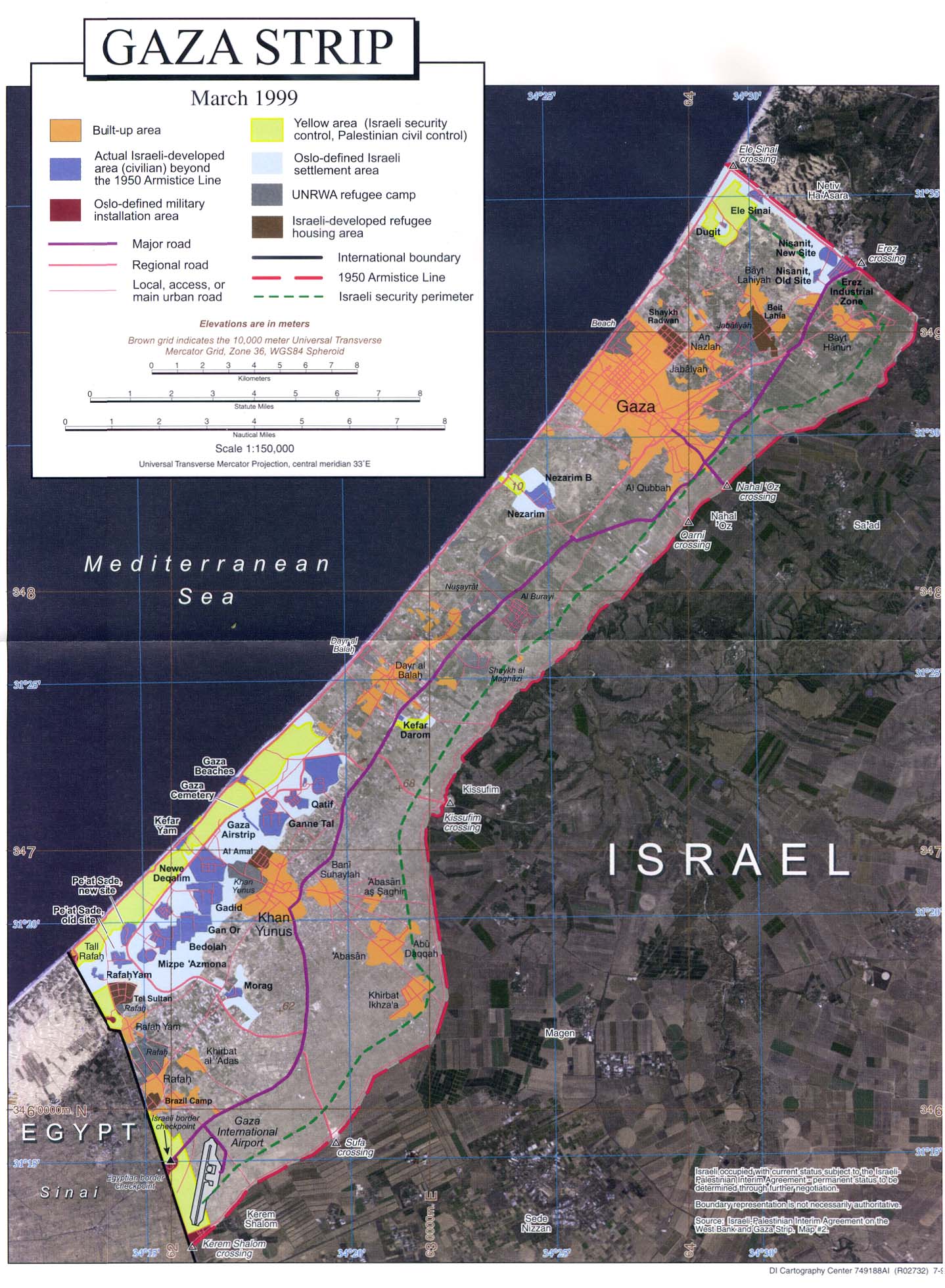A Dialogue with Torah

I've described my support for the Gaza pullout as "lukewarm," and mentioned that a lot of observant Jews would describe such lukewarm support as pretty nearly blasphemous. At Tisha B'Av observances last week, several people mentioned the evacuation from Gush Katif (which is one of those bluish areas down in the south end) and linked it to the sin of the spies. Like the spies, said these friends, the Israeli government is now saying to the Jews, "This land is too dangerous for us to live in, the inhabitants are too strong, let's just go back." In both cases that declaration is wrongheaded and utterly incompatible with what God would have us do.
One of us even went so far as to point out that after the sin of the spies, the Jews had to wander in the wilderness for 38 years before they could enter the land, and it's been 38 years since the Jews took back East Jerusalem and immediately surrendered control of the Temple Mount to the Muslim waqf. This, he said, is our opportunity to enter into our inheritance of the Holy Land fully, and the Israeli government is simply repeating our sin by withdrawing from the land.

The Gaza pullout is indeed alarming on a number of levels, not least the spiritual level noted by my friends. I'm reminded, however, of a passage from Torah which instructs us to go by the interpretation of law given us by the sages of our own time and not rebel against those sages when they disagree with earlier ones (I'll see if I can find the passage later). To the best of my knowledge, there's nothing in Torah that says we may not exchange land for peace, and in fact Israel has offered to do so repeatedly since it was founded without, I believe, any previous outcry from Orthodox rabbis.
That statement does not, of course, address the question of how realistic it is to assume that this pullout will in fact help establish peace in Israel, but at the moment we're not asking that one - we're asking whether or not we may give up land in the hope of peace.
There are certain pieces of land which, we are told, our fathers bought for cash. Those are Hebron, where Abraham, Sarah, Isaac, Rebecca, Jacob and Leah are buried, bought by Abraham for cash; Jerusalem, specifically the Temple Mount, bought by King David for cash; and (if I remember correctly) Shechem, where Joseph is buried, bought by him for cash. Other lands, presumably, may not be given up because the original ten tribes owned them by divine gift, and had to be available during the Jubilee year every fifty years so the tribes could return to them. Any other lands obtained by Israel in war have a different status. As I said, to the best of my knowledge there's nothing in Torah that says those lands may not be surrendered for peace.
There's the prophecy regarding Greater Israel, promised to the Jews by God at some future Messianic date, but since the Messiah has not arrived yet, as far as I can work out, Greater Israel has no status as yet that would forbid us to surrender it for peace.

Gaza is a part of Greater Israel, but until the Messiah arrives has no special holy status that I know of. Indeed, in Biblical times, Gaza was not a part of Israel at all. In fact, like today, it was a serious pain in the rear for Israel, since that's where the Philistines lived, and the Philistines were a problem for Israel for a couple hundred years or more. (Let's hope the Palestinians don't take after them in that way, at least.)

Now, there are plenty of ancient sages upon whose opinions people rely now to say that Israel ought not to pull out of Gaza. And Ariel Sharon certainly is no Torah sage. But there's that passage in Torah saying one ought to obey the Torah interpretations of one's time. Failing the presence of any central Torah authority in this age, why not follow the dictates of the Prime Minister of Israel?
Yeah, yeah, it's a bit of a reach, but observant Jews keep talking about Jewish unity, and it rather gets my goat that many of them seem to work steadily against any unity with their non-observant brethren.

The Gaza pullout is a painful process, especially for those who live in Gush Katif and places like that - those directly involved. Suicide bombing is also a painful process, especially for those directly involved. Given the choice (which is what we may have here), I'd have to opt for carrying live bodies out of the home of Gush Katif rather than dead ones. We'll see if the number of live bodies increases as a result of the pullout.
Benshlomo says, Weep for the homeless - weep more for the dead.

0 Comments:
Post a Comment
<< Home